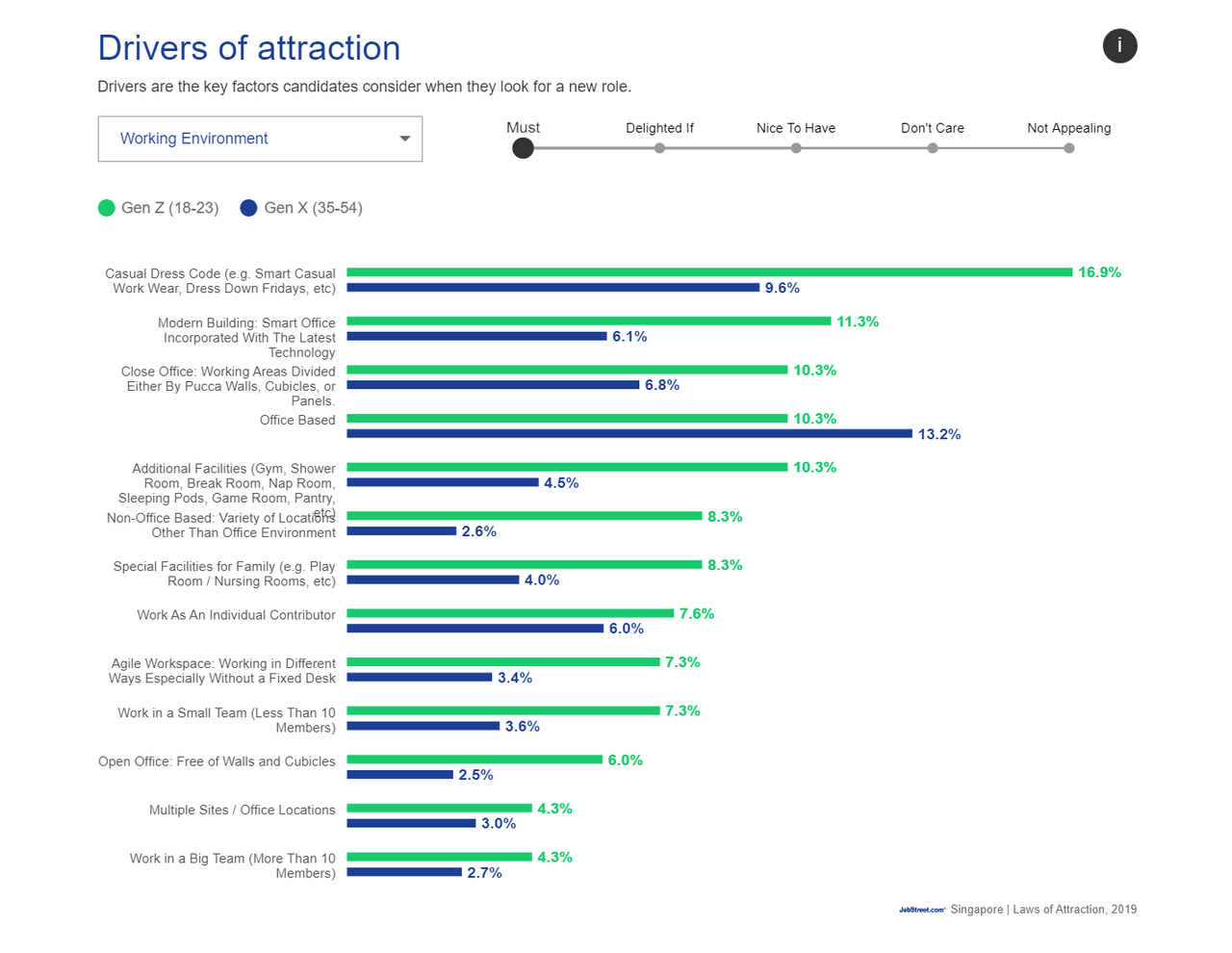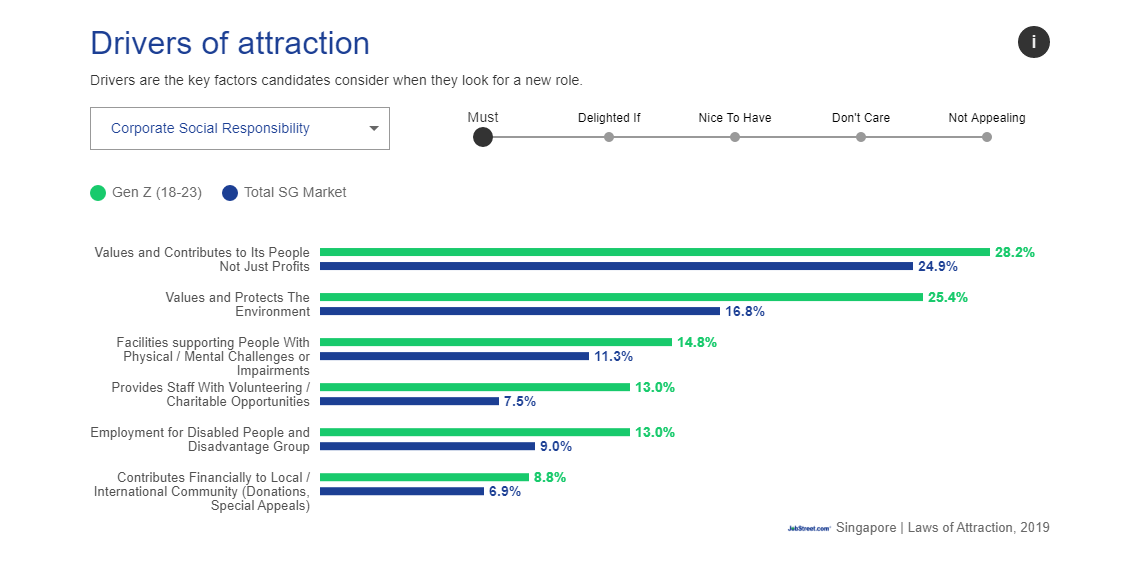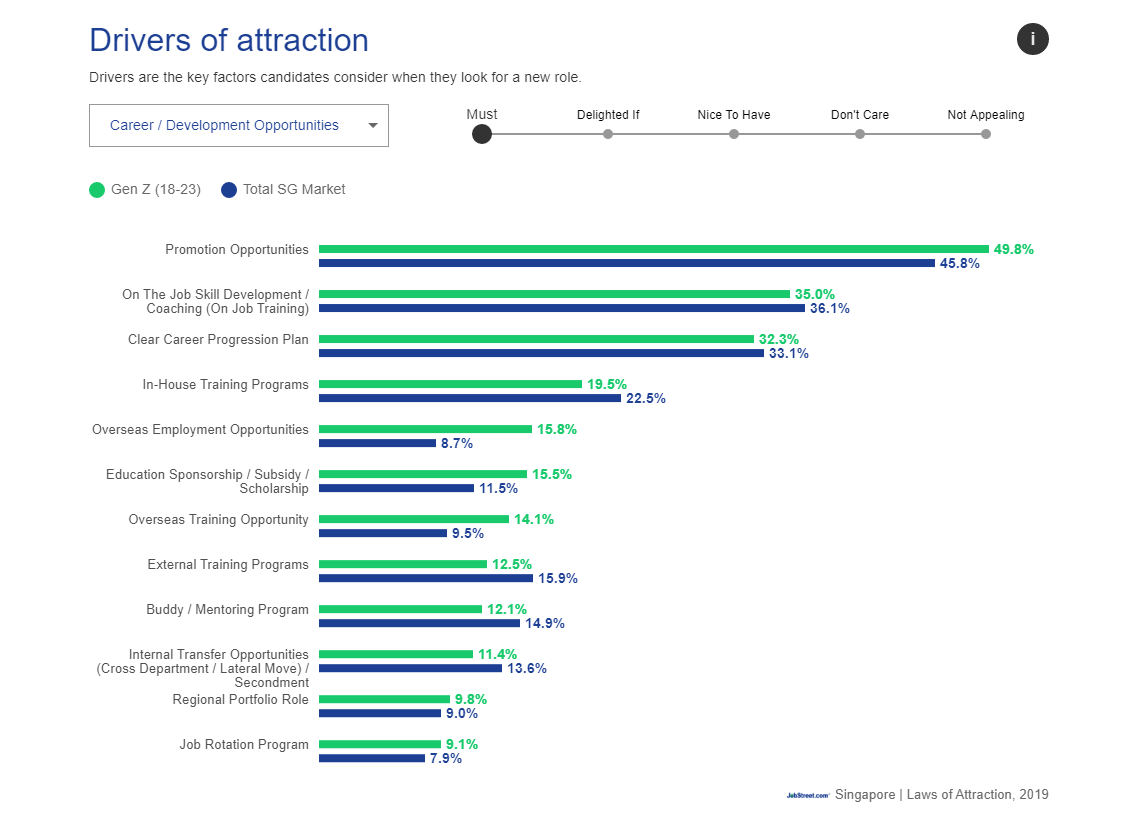
Generation Z: A New Workplace Entrant
There’s a fresh wave of workers taking over the job market and it’s not millennials. Meet Generation Z, the newest workplace entrant making waves across all industries.
Post-millennials, or Gen Zers as they are commonly known as, is the new moniker that’s making ripples everywhere. Born in-between the years of 1997 and 2002, this new wave of digital natives is certainly making their presence felt in the workforce across all industries.
The commonality between the millennials and Gen Zers is that they both were impacted by the big technological advancements in the current digital age. However, the differentiating factor is that unlike the older millennials, Gen Zers haven’t really experienced life without the internet. As one might expect, their lives revolve around and rely heavily on digital technologies, hence the term "digital natives" is often used to describe this generation of youngsters.
They are a fast generation expecting efficient and seamless processes, with high demands and expectations when it comes to the work environment. The following chart, taken from the Laws of Attraction (LOA) portal at JobStreet.com, interestingly illustrates the stark differences in expectations between Gen Zers and their middle-aged Gen X colleagues.
The Laws of Attraction (LOA) portal is your gateway into insights drawn from JobStreet.com's comprehensive study of more than 7,000 Singapore candidates across 20 industries.
Interact with this dataset here
So, how can organisations adapt to the new challenges posed by Gen Z, the new workplace entrant?
Embracing the Digital Revolution
Make no mistake about this. Gen Zers are not merely using apps and tech gadgets for entertainment or convenience - this generation practically embrace and breathe technology as a way of life! As such, companies should be keen on transforming and digitalising traditional approaches of work and be aware that they are laying the path not only for this new generation of digital-native workers but also for the increasingly technology-driven economy ahead.
Evidently, many forward-looking companies are warming up and conforming to such trends by creating positions such as Digital Officers to ensure a seamless integration of these young workers within the organisation. While on the other end of the spectrum, there are executives who remain unaware or are not responding well to these trends, thus leading to lackluster recruiting campaigns that fall short in tapping into the huge potential the Gen Z generation has to offer.
Embracing Corporate Social Responsibilities (CSR)
Gen Zers grew up in an era where social and environmental issues such as inequality, supporting the disadvantaged, climate change and sustainability took prominence to the forefront. As such, this generation of socially responsible workers bring with them to the workplace a greater sense of corporate social responsibility towards the environment and the society at large. Their strong sense of CSR, as contrasted with that of the total Singapore market, is illustrated in the LOA data as seen below.
Interact with this dataset here
Enhancing Competitive Culture
It is worth noting that Generation Z is a competitive lot and wouldn’t mind taking their colleagues head on to prove their mettle. The creation of a positive and competitive environment would definitely be advantageous to the organisation. In their embrace of individuality, they thrive on getting things done on an individual level and one way this can be harnessed is through encouraging healthy competition between team members where high performers are duly recognised and individually rewarded.
Improving on Work Space Design
Gen Zers are a competitive group but that doesn’t mean they hold teamwork in low esteem. By striking an optimal balance between individual and team, such as through the design of office space and layouts that not only offer individual privacy but also facilitate team interaction and bonding, organisations stand to gain from the resultant personal productivity and team synergy.
In as much as companies may comply and incorporate a boatload of changes to conform to the needs of this new generation of digital-native workers, much needs to be done in ensuring that companies attract the best talents from this crop of Gen Zers. We look at some of the ways and incentives companies can use to attract their ideal Gen Z candidates.
Offering Beyond Benefits
Many companies try to stand out in the job market by offering flashy benefits and better perks to attract the post-millennial crowd. It might be effective to some point but the truth is, Gen Zers look forward to something more than hard benefits. A good way for an organisation to gain a clear advantage at recruitment, as evidenced in the LOA chart below, is by showing Gen Z candidates throughout the recruitment process the career and development opportunities awaiting them, in particular, promotion opportunities, education sponsorships and overseas employment and training opportunities.
Interact with this dataset here
Embracing Diversity and Equality
As discussed earlier, Gen Z pays much attention on matters surrounding social responsibilities and the natural environment. Recruitment campaigns highlighting company values such as diversity, equality and social and environmental issues endearing to Gen Zers will likely be well received. Being a tech-savvy generation, this young generation of candidates can be readily reached online through digital mediums such as social media networks, videos and blogs. By employing smart content marketing strategies around these current issues to capture the attention of these young audience, companies and recruiters alike will be able to effectively build a ready pool of candidates at relatively lower costs than traditional mediums.
Building the Company’s Online Brand Presence
Companies can also establish a brand presence on social media networks like Facebook and Instagram, and on professional platforms such as LinkedIn to engage with potential employees and to build up a diverse pool of young candidates. Constantly updating followers of what the company is doing and of new job openings is critical to this cohort of workers as they are constantly checking out opportunities.
Conclusion
To successfully attract the young workforce, companies today will have to shift away from traditional modes of thinking and transform the corporate environment to adapt to this new generation of digital natives. HR specialists and people managers will need to have a clear understanding of the unique needs and aspirations of these Gen Zers, and stay a step ahead in addressing the current issues that will ultimately impact company performance.
Data used in article are drawn from Data Lab - the interactive exploration tool at JobStreet.com's Laws of Attraction portal - based on a comprehensive study of more than 7,000 candidates across 20 industries in Singapore.
Related articles:


